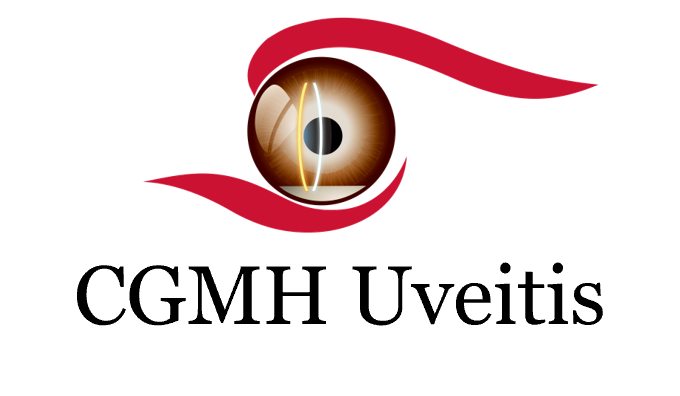Vitreoretina/Uveitis
Vitreoretina/Uveitis
Fellowship Program

Chang Gung Memorial Hospital (CGMH) offers the largest and most comprehensive healthcareservices in Taiwan, comprised of a network of 7 hospital branches located in Linkou, Taipei, Taoyuan, Keelung, Yunlin, Chiayi, and Kaohsiung. Our hospital network contains a total of 10,050 beds and receives an average of 8.2 million outpatient visits and 167,460 surgical patients every year. It was estimated that a third of the Taiwanese population have sought treatment at Chang Gung. Having been featured in National Geographic Channel’s documentary, “Taiwan’s Medical Miracle,” our hospital’s medical achievements are both nationally and internationally acclaimed.
CGMH, Linkou Medical Center is a Joint Commission International (JCI) accredited, multi-specialty hospital situated amidst the flourishing district of Linkou, Taiwan. Founded in 1978, CGMH Linkou has been listed among one of Taiwan’s largest, most prestigious, medical and educational centers, containing nearly 4,000 beds and a total of 29 specialty centers. To date, the hospital has trained more than 1,700 practicing physicians from 75 different countries in the last decade. Not only does the hospital account for almost 10,000 outpatients a day, but it also receives the highest number of international patients in Taiwan, treating over 10,000 patients a year.
CGMH Retina/Uveitis Service, Linkou holds the largest amount of VR operations in Taiwan, and has comprehensive subspecialty cases including degenerations, macular, myopia, trauma, uveitis, and pediatric. We are particularly interested in training the “leader of the future”, an expert not only a clinician but also a scientist who is interested in exploring the unknown.
CGMH Retina/Uveitis Service provides:
- Short-term (< 3 months) Observership Program year-round. Please send requests at least 4 months before the desired starting date.
- Long-term (≥ 6 months) Fellowship Program starting each year preferably between July and September, or January and March. Requests should be sent at least 6 months prior to the commencement date. However, the actual commencement date of the fellowship is subject to change, at the discretion of the fellowship coordinator, depending on the fellowship vacancy status.
- The Fellowship Program offers mixed medical/surgical training. The usual schedule is 2 days/week in the operating room, 2 days/week in the clinic, and one research day for each week. The schedule is subject to change depending on the number of fellows.
- During the first 3 months, Fellows are required to participate in research projects, learn the hospital’s electronic medical recordssystem, and observe clinical practice. After 6 months, Fellows may assist in surgery under the supervision of a qualified faculty.
- A certificate of completion of fellowship will be granted after a “Fellowship Conclusion Report” is completed.
CLINIC/WARD DUTIES
- Fellows are expected to mentor residents and medical students.
- Fellows are required to help with clinical works and examine pre-and post-operative patients and assist in the care of inpatients. Discussion on selected cases should be done at the end of a clinic.
- Fellows should participate in ward rounds, clinic rounds, and ROP rounds.
SURGICAL TRAINING
- Patient safety is always the first priority.
- The surgical training program is individualized and dependent on the fellows’ surgical skills. Every surgical procedure must be supervised by a faculty.
- All Retinal Fellows take part and share the retina on-call duties which include weekdays and weekends. Depending on the number of fellows, on-call duties will be per 2 days or 3 days.
- A surgical log should be made and kept for each surgery involved and should submit a summary logbook at the end of the program.
- Fellows should present in surgery rounds with surgical videos.
ACADEMIC/RESEARCH OPPORTUNITIES
- Fellows must actively participate in academic and research activities. These should include meetings, conferences, and clinical/laboratory research.
- Fellows should conduct monthly journal readings and case conferences with residents.
- Fellows should report their research project results during Resident Day (an event usually held in October and April each year). It is expected that such research can be presented in a local Taiwan or international meeting during the Fellowship Program.
- Each Fellow is expected to generate two or more publications including original research in peer-reviewed journals, review articles, or textbook chapters.
FELLOWSHIP ENQUIRY
- Please prepare your curriculum vitae containing a passport-sized portrait digital photo, present employment, previous postgraduate experience in ophthalmology and related subjects, qualifications, research interests, publications, and meetings attended. Exact full dates must be included for employment (e.g. 2011 Jan 11 – 2013 Dec 31); any breaks in employment must be explained.
- A personal statement outlining future career plans upon return to the country of origin. Also, provide desired start and end dates of Fellowship.
- Surgical log including the number of ophthalmic surgical/laser experience and VR
surgeries - Two recommendation letters from supervisors, including one from the current department.
- Please email the above documents to
- Professor Chi-Chun Lai, Superintendent (chichun.lai@gmail.com)
- Professor Wei-Chi Wu, Immediate Ophthalmology Chair
(weichi666@gmail.com) - Professor Yi-Shiou Hwang, Ophthalmology Chair
(yihshiou.hwang@gmail.com) - Professor Kuan-Jen Chen, Retina Chief (cgr999chiayi@yahoo.com.tw)
- Please also cc our current VR fellowship coordinator Dr. Hung-Da Chou
(hdmorph@gmail.com) and Ophthalmology Chief Resident
(ophccr@gmail.com)
INTERVIEW
- After reviewing your documents, an online interview might be arranged to further discuss your career goals and whether we could help you achieve them. We also invite the applicants to come directly to CGMH to get to know the program in detail. Taiwan Macula Society (TMS) holds 3 meetings each year and these meetings provide great opportunities to meet the mentors and future coworkers in person.
- If the fellowship is confirmed, please follow the below formal application process to officially apply for the training program.
FORMAL APPLICATION PROCESS
- After acceptance, please contact our Chief Resident (ophccr@gmail.com) and our secretary Ms. Grace (gracemy330@cgmh.org.tw) for their assistance to proceed with the following required documents:
1) Application form
2) Copy of the diploma
3) Copy of professional license (certificates of medical registration or licensure)
4) Copy of the passport
5) Certificates of working experience (requires one year at least)
6) Recommendation letter
7) CV
8) Physical examination report in the English version (When your application
is accepted by the department, please do the examination within 3 months
before the training date to Chang Gung Memorial Hospital)
9) Health insurance certificate during the visit - Also, please note that the examination should include serology data of Hepatitis B, Hepatitis C (both within 6 months) and Chest X-ray (within 3 months) RPR/VDRL, Measles Antibody, and Rubella Antibody from the hospital. If the serology data of the Hepatitis B antibody is negative, proof of Hepatitis B vaccination is a must before arriving at Chang Gung Memorial Hospital.
FAQ
- Language barriers?
- The language will cause some barriers so it would be best if the trainee can learn some basic Chinese words so that one can examine the patients. But basically, all the medical charts are in English, and your mentors and the residents are all fluent in English. Our past trainees who cannot speak Chinese (at least 5 Mongolians, and a few from other non-Chinese-speaking countries) still have good training results here. The most important learning is surgical, for that language is not a big problem.
- Salary/accommodations?
- CGMH doesn’t provide salary for trainees but does provide grants to selective long-term fellows (≥ 12 months). Please contact our chief resident and secretary for further details.
- There are dormitories inside the hospital at a reasonable fee. Also, there are free bus transportation between CGMH Linkou, Taoyuan, Taipei, Keelung, and Taipei Train Station.
- Past trainees?
- If you’d like to know some more details, we are happy to provide the contact info of our past trainees so that you could have their suggestions directly.



